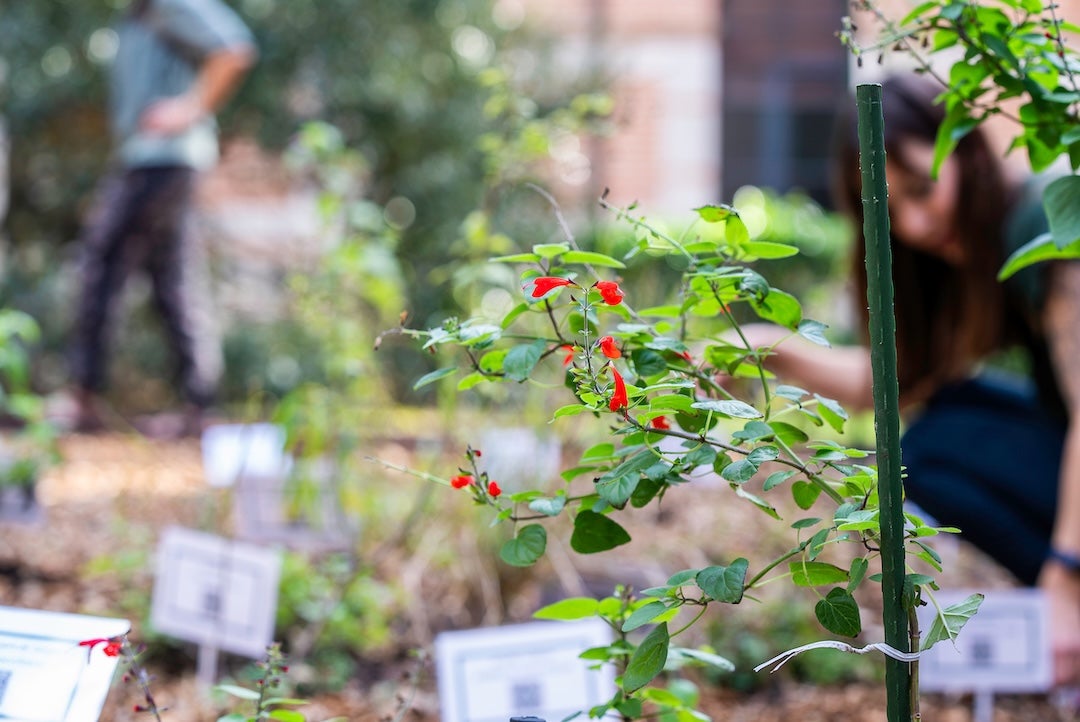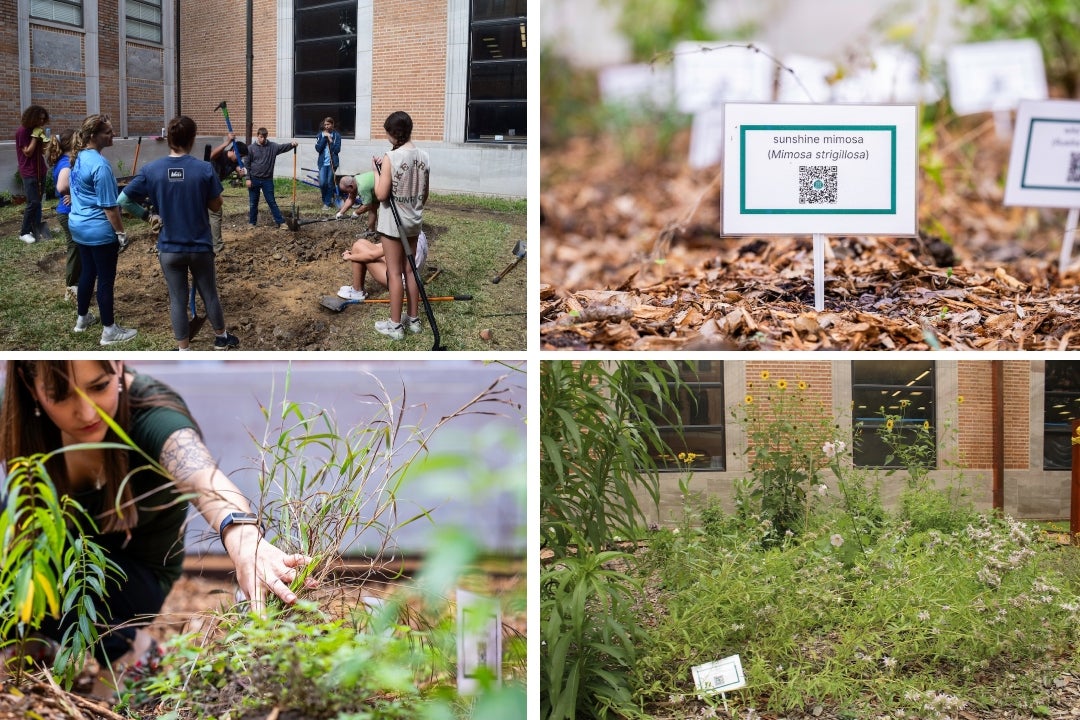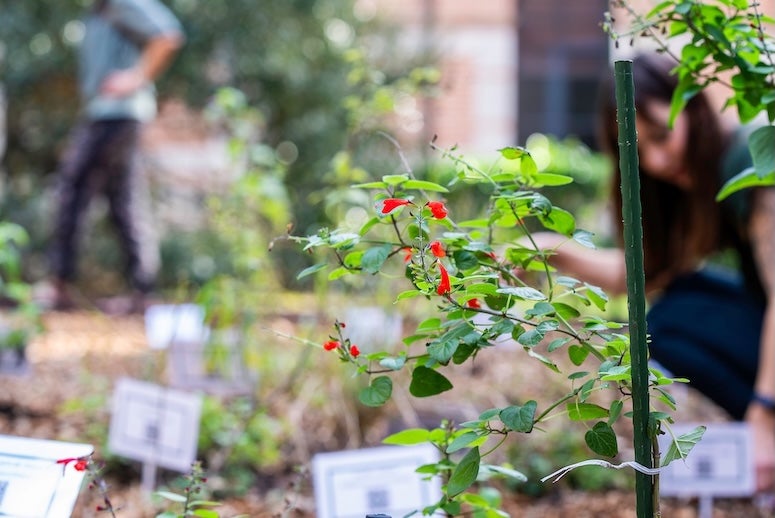
A new sustainability initiative is transforming the landscape outside Fondren Library at Rice University — and it’s more than just a garden. It’s a research-informed, community-supported effort to turn a piece of campus into a climate-resilient, biodiverse teaching space.
Located in the space between Fondren Library and the humanities building, the rain garden is a joint project involving Fondren’s Seed Library, the Fondren Green Team and a Scout-led conservation initiative.
The garden’s design and goals are grounded in both environmental stewardship and educational value, says Hannah Edlund, a librarian at Fondren Library who is closely involved with the project.
“I started doing some planning and working towards it, thinking this is something we could do,” Edlund said. “It could manage potential flooding, and it would be a great way to make the seed library sustainable by providing us with more seeds.”
The garden includes only native Texas plants, chosen for their ability to manage stormwater, support pollinators and serve as carbon sinks. The native plantings help absorb rainfall more slowly into the soil and alleviate some flooding issues around Fondren.
“They help sequester rainwater and manage how rainwater is absorbed more slowly into the ground,” Edlund said.
But the ecological benefits don’t stop there. The native vegetation will create habitat for a wide array of species — from bees and butterflies to moths and beetles.
“Everyone loves birds, butterflies and bees,” Edlund said. “But we’ll also hopefully get some of the beetles and the moths that would use these plants as food or nesting sites or whatever they need from them.”

Mary Cate Orsburn, a local Scout from Troop 1314 in Bellaire, helped lead the project as part of her requirements for the Eagle Scout rank and the Distinguished Conservation Service Award.
“With Hannah’s support and the help of dedicated volunteers, I led the effort to design, dig, plant and build the rain garden using native species to create a low-maintenance and eco-friendly solution,” Orsburn said. “The project challenged me to stay organized, work closely with Rice staff and manage a team efficiently. In the end, it was so rewarding to see a lasting impact take shape and know that the garden will continue to support local ecosystems for years to come.”
As Fondren Library expands its efforts around sustainability and public scholarship, Edlund said the garden is part of a broader trend in academic libraries embracing hands-on, environmentally focused learning.
“As libraries expand how they keep information and work with scholarship, a lot of people are now creating teaching and learning gardens,” she said.
The rain garden aligns with Fondren’s designation as a CREW (Communities Responding to Extreme Weather) Hub — a climate resilience hub intended to support communities in preparing for extreme weather and adapting to climate change. The project is receiving guidance from Rice professors Cassidy Johnson and Dominic Boyer as well as Richard Johnson, director of the university’s sustainability office.
The Fondren Green Team, led by Lisa Spiro, has played an instrumental role in supporting the project through institutional channels and by helping coordinate permissions for landscaping changes, Edlund said.
Looking ahead, the garden is expected to serve as a living lab for students and faculty interested in environmental studies, native ecosystems and sustainability design. Edlund also has collaborated with students in Rice’s Engineering 120 course to create a large cistern for capturing rainwater — a way to store moisture during periods of drought and further support the garden’s resilience.
“It’s a rain garden, so it’ll have many different kinds of native plants, and we’ll have all kinds of native animals and critters in there,” she said. “I’m looking forward to working with professors and students who want to learn about it and having future projects from there.”
Ultimately, Edlund sees the rain garden as a community asset — one that will foster learning, environmental stewardship and meaningful connections between Rice and the broader Houston area.
“My idea for this is for it to be something that Fondren works with Rice and with the greater community on,” she said. “It’s meant to be a continued project where we are hoping to create improvements over time. So it’s an evergreen project in a way — the plants will always be growing and rearranging themselves, but we also hope to increase what it has and how it works within campus.”

